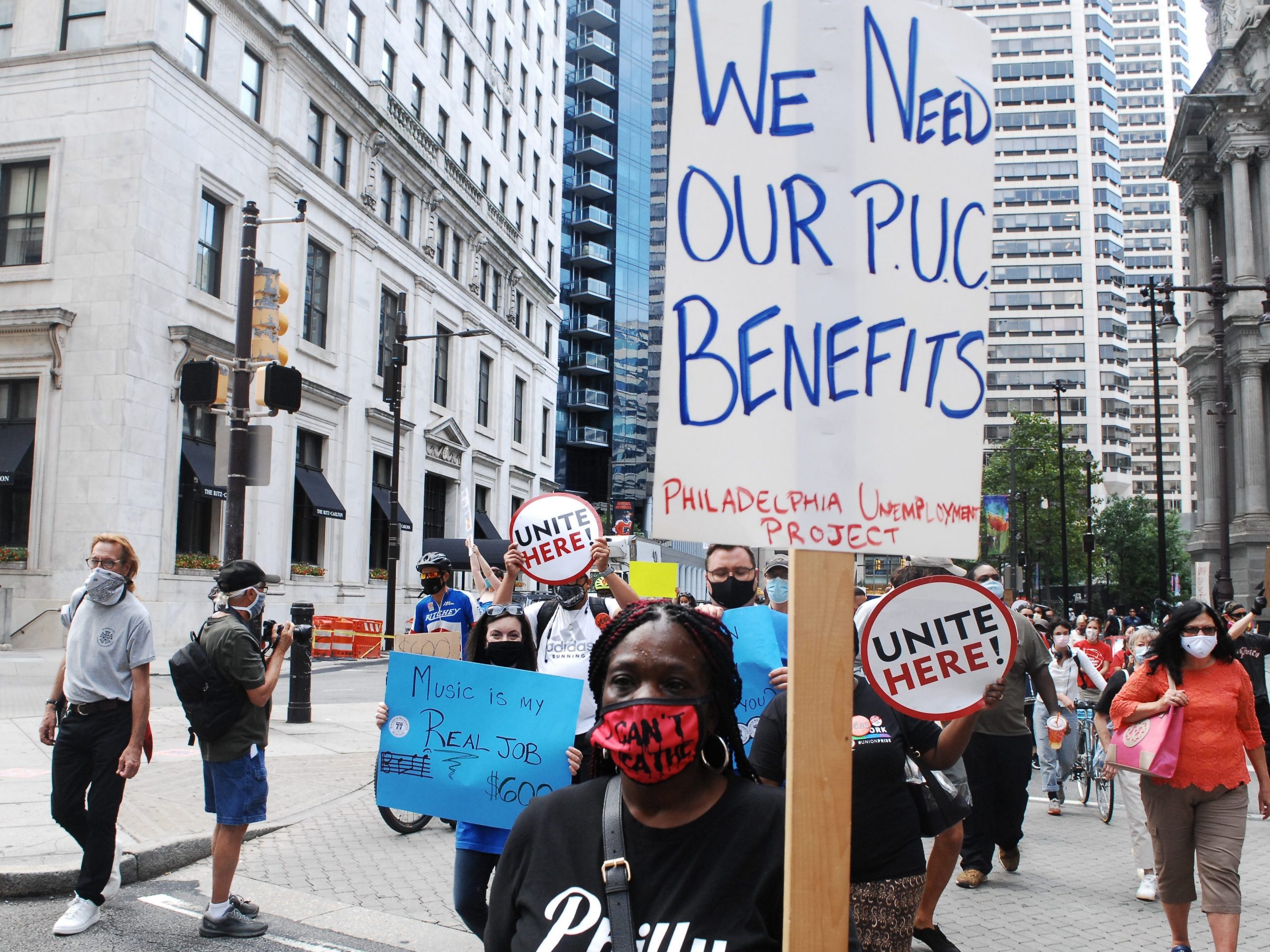
Cory Clark/NurPhoto via Getty Images
- Filings for unemployment insurance are still double pre-pandemic levels, and that may never change.
- That's not necessarily a bad thing: It reflects an increased awareness of eligibility.
- The CARES Act could mark a permanent shift in how Americans use UI, RAND economist Kathryn Ann Edwards says.
- See more stories on Insider's business page.
Filings for unemployment benefits are still roughly double their pre-pandemic norm. There's reason to believe they'll never hit those lows – the old "normal" – ever again.
Weekly counts of jobless claims have fallen steadily as more Americans have gotten vaccinated and economic restrictions were reversed. Initial claims most recently came in at 400,000, down slightly from the prior week but still much higher than readings before March 2020.
Claims may never again reach pre-pandemic lows because many Americans simply didn't know or realize they were eligible for UI before the pandemic. The economic devastation of the last year-and-a-half opened their eyes to the program, and the genie will likely remain out of the bottle.
Unemployment has taken on added importance in recent weeks as 26 states end the federal boost to UI before the planned September expiration. But as governors monitor claims for signs of a strong recovery, some economists are bracing for elevated counts to stick around.
Weekly claims data reflects not just the labor market's rebound, but the UI program's performance as well, Kathryn Anne Edwards, an economist at the RAND Corporation, wrote in a July tweet.
The share of unemployed Americans filing for benefits steadily declined from 1950 to 2019. That drop was likely fueled by tighter eligibility requirements like job-search requirements and earnings tests, Edwards said.
"It's not that the majority of unemployed workers don't get UI, it's that the majority never apply for it," she added.
That changed when the $2.2 trillion CARES Act was approved in March 2020. Where UI programs had previously been state-specific and varied widely, that historic stimulus package added a federal boost that elevated awareness of the program nationwide. The ratio of claims to unemployed workers rose to the highest since 1950. Should that effectiveness hold, it's possible claims remain well above their pre-crisis levels, Edwards said.
The CARES Act "changed the incentive, it changed the benefit's size, and it changed the delivery," Edwards told Insider. "We knew all three of those things were preventing people from applying before."
An argument to expand unemployment
The size of Congress's intervention revealed just how ineffective states' programs had become. Every recession since the 1970s left states with less funding for UI and a greater reliance on federal help. The CARES Act gave unemployed Americans the "meaningful" support that states couldn't provide on their own, Edwards said. If lawmakers want states to provide such a safety net, their programs need major reform, she added.
"It really speaks to how low the programs had gotten, but also how little money states had to do anything similar," she said. "If states have learned anything from this recession, it's that their unemployment insurance matters less than what Congress will do. And Congress will do something."
Throughout the pandemic, federal programs have stepped in to fill the gaps that traditional unemployment insurance left behind. Specifically, Pandemic Unemployment Assistance (PUA) expanded eligibility to gig workers and self-employed workers - by the end of 2020, that program made up the greatest share of federal UI distributed.
The White House said in April it's "committed to strengthening and reforming the system for the long term," and the enhanced benefit's looming expiration is pressuring lawmakers to pass lasting support. Some proposals would not only beef up benefits, but permanently expand who can receive them.
Some Democrats have put forward legislation that would incorporate PUA recipients into a more permanent system. Since PUA explicitly included more workers, a permanent expansion would also keep claims elevated.
That means more unemployed workers would receive aid, which has always been the point of the program. That's a good thing.
